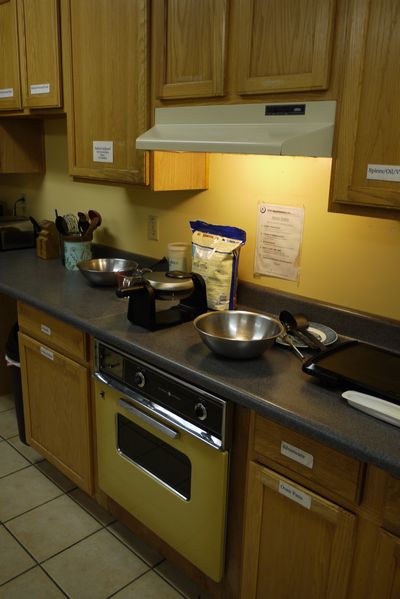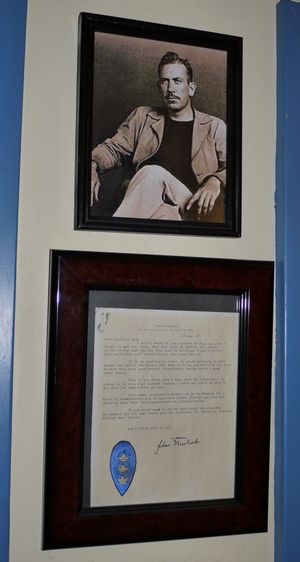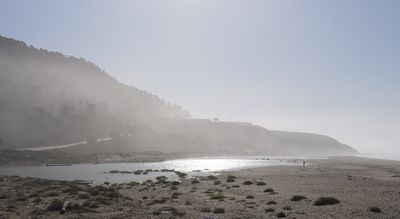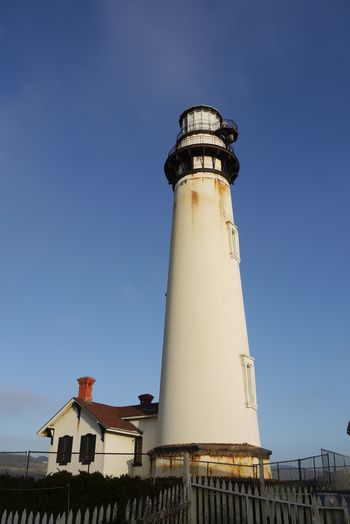Next morning in Monterey hostel.. Which isn’t actually in Monterey. But there is make your own waffles, and some fantastic bike stowages…



I liked Monterey hostel. Even if it was in neighbouring Pacific Close. Which I also liked. And I particularly liked the arrangements for breakfast. Make your own waffles. Mine were an edible first attempt, the burnt bits hidden by an over flowingly generous coating of hazelnut spread.
Despite a late night, I’d risen early. They’d be ample time, I’d reasoned, to catch up on sleep once I reached my camp site that evening. Few jobs to do before I left, and a challenging sixty miles of coastal riding to be done before sunset. Up a little after six.
I’d have been tempted to spend a day in Monterey, but wanted to make more ground to the south whilst the good weather held. Finding myself increasingly tactical, exploiting situations to best effect. Laundry facilities, WiFi, weather, terrain.

Gone one when I’d retired to my bed. My own fault, for it’d been a late arrival at Monterey’s hostel. Not least because it wasn’t actually in Monterey, but further on in Pacific Close. I’d reached periphery of the Californian seaside town a little after sunset, struggling to make sense of the directions I had.
The small inset map in my hostel guide mentioned Cannery Row. I’d found signs for this so had headed towards it. One of my frequent stops to get my bearings eliciting the help I needed from David. We chatted for a while for he had aspirations to cycle tour.
Another example amongst many of a genuine willingness to help. Not the scripted ’Have a nice day’ but a real desire to be of assistance. I’d mentioned this earlier in the day to Lisa, a passing cyclist who’d seem me fumbling with my guidebook and had come to my aid. Perhaps, I’d added, it might be different elsewhere in the States, I’d have to see.

The Steinbeck connection with Monterey had eluded me, the town being the setting for his novel Cannery Row. Discovering the link only when I’d finally reached the hostel, drawn to a framed letter from him hung on the wall. I’d not read the book, but was part way through one of his later works, Travels with Charley – In search of America.

Beyond Santa Cruz vast open, flat fields of artichokes. Largely flat save for a few gently rolling hills, neat rows of strawberry plants. Dotted about groups of labourers, moving in irregular lines, picking the crops. Wide brimmed hats and scarves to shield them from the dust as much as the sun.
Mostly women I thought. I’d expected Mexicans, illegals, but they reminded me of the Gobi desert gravel sweepers. Chinese. Wondering how they came to be here, who they really were. What dreams they must have had. Still held.

I’d left Pigeon Point earlier in the day, riding steadily for thirty or so miles into the University town of Santa Cruz. A little lingering sea fog along the coast, but largely clear and bright. Pleased with progress, but failing to appreciate how tediously slow it would be to navigate out the other side.
I’d a guide book, but it was mostly textual descriptions rather than diagrams, and I’m very visual. But my frequent efforts to consult it at the roadside often drew help from passing cyclists, of which there were a few.


"I’m more of a landfill person" I explained. The woman had asked if the hostel, a delightful affair comprised of a series of cottages besides Pigeon Point lighthouse, did recycling. She seemed unimpressed with my teasing reply. It’s not that I’ve anything against dolphins of course, or that we shouldn’t do more to protect the environment for future generations.
But I do struggle to grasp why vendors frequently leave their organic vegetables caked in mud. And where I do have a problem is that whilst everyone is doing their little bit, laudable though that might be, there’s a danger that this engenders a false sense of progress and a failure to address the real problem. Industrial pollution.
Time, I thought to retire for the evening. Decent distance to ride the next day, close on eighty miles. In part because I’d chosen to stay at a second lighthouse hostel, a little on thirty miles from the previous one at Point Montara. Fantastic locations. Friendly staff. But at Pigeon Point things didn’t seemed to have quite gelled with my fellow hostellers in Dolphin cottage.
Rustling the map in the cosy common room had raised a few eyebrows. Silent tutting. I’d ignored this. Tapped a little harder on the computer. A late arrival had asked what one did for food – did you just help yourself? Someone politely pointed out you had to bring your own. People like that scare me. I’d found myself wondering if I was the only one not afflicted with OCD.

She was swathed in clean white bandages, shades and stilletoes. Quietly amused myself as to whether this was simply for Halloween or a statement on healthcare provision. A friend sat opposite her. Conversation punctuated by frequent phone calls.
I’d headed off Highway One along California’s central coast, a few miles inland to Pescadero. Small town distinguished, in my mind at least, by the fact that it was the only place around with chance of a coffee before my next overnight stop. Pigeon Point lighthouse hostel. Short day and I didn’t want to arrive before it opened at five.
Pescadero seemed pleasant enough. Expensive looking bakery. Small cafe cum village store. My choice for refreshment. A bank that appeared to do the most brisk of trade.
Healthcare was the one thing I didn’t get. But then neither did a lot of Americans. Even those with insurance often bemoaned the extensive exclusions, the unaffordable premiums, the pitiful payouts. I’d seen the odd poster in shop windows, groups campaigning for reform. Growing groundswell? I wasn’t sure.
